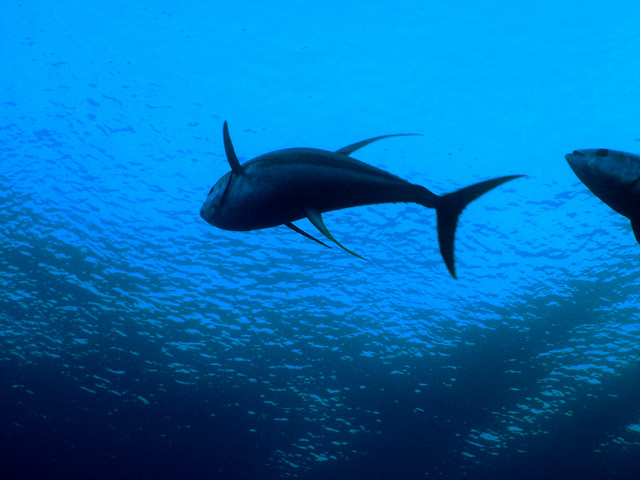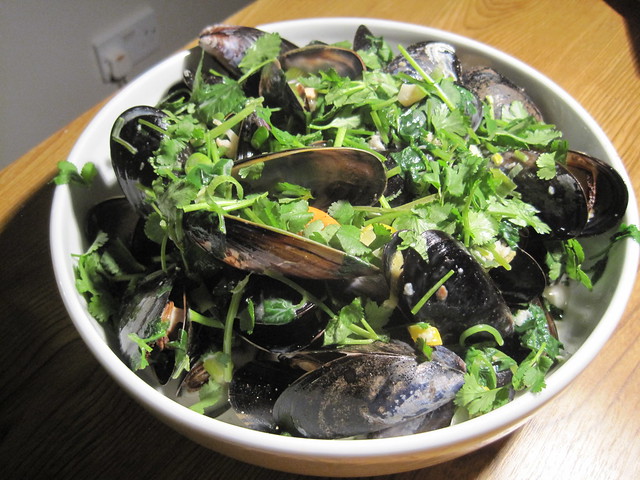A group of crusading celebrity chefs have had a ratings and it would appear sociopolitical smash hit in the UK with a series of tv shows under the broad banner of the "Big Fish Fight". Principal among their complaints are that the EU common fisheries policy requires (due to quotas) fish of certain species to be thrown back dead having been caught by non-selective trawl nets as their sale is illegal. The British public was, when at last confronted by this long-standing and shameful waste of wildlife and usable food, rather outraged and at the time of writing some 605,000 people have signed the fish fight petition. With 61 million people in the UK(ish) this represents a rather impressive just under 1% of the population. In addition to petitioning government (the CFP is due for renewal soonish), the Fishfight campaign focussed on what it felt the public could do and in particular suggested consumer power by way of choosing not to buy certain fish or to buy instead other "more sustainable" fish. Charlie took what I felt to be some rather cheap shots at the celebrity chefs because they were celebrity chefs but then asked me this very good question:
Like I say, I wanted to ask questions, I wanted data. TH, I know you’re far more knowledgeable about the sea than I am – in all seriousness, is having chefs urging a huge human population to eat more fish/seafood genuinely the way to support biodiversity and ensure healthy oceans for ALL forms of life?To which I can only answer "erm. I don't know." My gut feeling is that yes it absolutely can for broadly the same reasons I agree with this article. I'd also take issue with the categorisation "eat more seafood"; the use of the words "instead of" featured heavily throughout and I'd say it is better categorised as "eat alternate seafood" but here's some initial data from the week of broadcast:
- In Sainsbury's, sales of pole and line caught tinned tuna are up 17 per cent compared with last week
- Sainsbury's also recorded a 167 per cent increase in pollock
- Sainsbury's sales of British and MSC-certified mackerel were up 60% and mussels were up 16%.
- Waitrose has seen overall seafood sales rise by 15 per cent
- Marks & Spencer had its biggest ever week for fish, with sales up 25 per cent on the same time last year.
The first 2 stats are broadly encouraging. Pole caught tuna is a very targetted method of taking tuna and if that increase reflects a similar downshift in net caught tuna then that equates to a probable 17% decrease in the number of sharks, dolphins, turtles and billfish lost as bycatch in order to put tuna in tins on british shelves this week. If on the other hand it simply reflects a 17% increase in pole caught sales with no decrease then we simply have fewer tuna in the world. By the way this 2 metre long sculpture of muscle is what tuna looks like before it goes in those little cans....
The same story can be told with the pollock stat; pollock is a member of the cod family and the increased consumer use of the often wasted pollock and coley (another cod family member) instead of the overfished cod and haddock was another story of the show. If the overall amount of consumption stays the same we're progressing, if it goes up....hmm.
Increases in MSC mackerel should be encouraging as (for now) we have to take MSC certification as some indication of sustainability; in any event Mackerel is fast growing and hence faster to reach spawning size and hence replenish its population (unlike say cod or monkfish which are slower to grow, slower to reach spawning size and hence slower to recover) and can be caught by purse seining in open water as opposed to bottom trawling (hence reducing bottom damage and bycatch unlike say monkfish or cod). Mussels are about as sustainable as wild seafood can be. NEAQ notes:
The suspended culture system in which mussels are grown is one of the most environmentally friendly forms of aquaculture. Generally impacts on marine habitats are minimal provided mussel farms are appropriately sited. Mussel farms can actually improve local water conditions-these filter feeders remove excess algae, nutrients and sediments as they filter plankton from the water. Overall, farmed mussels are an excellent choice for seafood lovers.Which is why I, by coincidence, ate this last weekend:
And then we have those last 2 stats which go directly to Charlie's point. Does this overall increase actually contain within it an increase in sustainability? Whcih brings me back to "Ermm I don't know. "
What I do know is that we can't look at seafood consumption in isolation. The 25% increase in buys of seafood at Tesco must have corresponded to a reduction of some food purchase somewhere (unless you believe Hugh and Jamie are that good that people are eating extra food?) and that should be taken into account. Does it equate to one less battery farmed chicken a week fed on soya grown on a former rainforest? Or one less organic pork chop? One less pot noodle? One less Linda McCartney Quorn meal? We don't know and we're unlikely ever to have stats to effectively and realistically calculate the effect. What we do know is that the oceans are able to provide us some seafoods more sustainably than others and a shift to those seafoods from less sustainable ones is a good thing. I can also tell you that this is the first time in my memory that people who aren't divers or fishermen appear not only interested in fishing issues but genuinely enraged by it. This is also a good thing. What happens nextw hen we get the supermarket sales stats for the next year or so is where things get interesting. It is also where Charlie's question really gets answered. I for one am optimistic. For what it is worth - there should be more and more sustainable fish options coming online as time goes by - I'll probably talk about some of these next week.


No comments:
Post a Comment